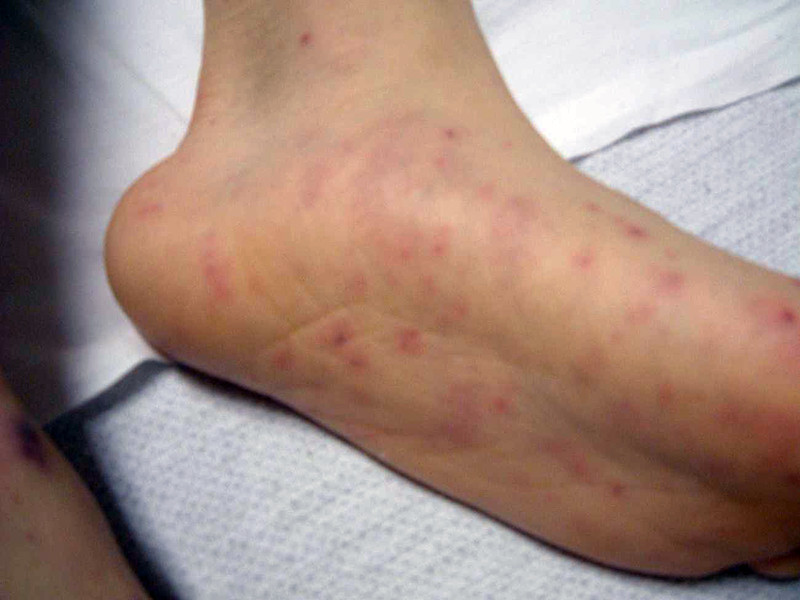Meningococcal Disease: contact tracing underway, medication provided
HPA confirmed the discovery of the life-threatening disease in the island nation, on June 25


Meningococcal Disease
Authorities have begun contact tracing efforts after the discovery of Meningococcal Disease in the Maldives.
The Health Protection Agency (HPA) revealed that following the detection of a case of Meningococcal Disease, relevant information has been collected, contact tracing has been done, contacts have been informed and contacts have been provided prophylactic drugs for disease prevention.
The public health authority confirmed the discovery of the life-threatening disease in the island nation, on June 25.
Meningococcal is a life-threatening disease that transmits through the respiratory system.
Those who are in close proximity with infected individuals are more likely contract the virus.
Symptoms of the disease appear one to 10 days after contracting the virus.
Invasive Meningococcal Disease is caused by a bacteria called Neisseria meningitidis.
Although rare, it can cause severe illness and the two most common types of invasive meningococcal infections are Meningitis which is the infection of the covering of the brain and Meningococcal sepsis or bloodstream infections.
Some of the symptoms patients with Meningococcal sepsis or bloodstream infection develop include sudden onset of fever, chills, vomiting, diarrhea, rapid breathing, severe aches or pain in the muscle joints, chest or abdomen as well as dark red rashes or spots.
Symptoms of Meningitis include fever, headache, stiff neck, nausea, vomiting, sensitivity to light and altered mental status such as confusion.
HPA stressed the importance of visiting a doctor without delay, if those who travelled to Saudi Arabia to perform this year’s Hajj pilgrimage who did not receive the meningitis vaccine for any reason or those who did not complete 14 days between the date of vaccination and their departure for the Hajj pilgrimage, develop symptoms.
Meningitis vaccination provides protection against the disease.
The shot takes about two weeks to build the body's immune system.
It is advisable to get vaccinated at least two weeks in advance to prevent the disease.
According to the Center for Disease Control and Prevention (CDC), Meningococcal bacteria can spread through the transfer of blood, from the respiratory system, through coughing, sneezing, living in close quarters or getting intimate.
While everyone is at risk of contracting the virus, a specific group of individuals is at a higher risk of complications, including children under one year of age, children and youth between 16 – 23 years of age, young adults, college students, those suffering from specific health conditions affecting the immune system such as HIV, microbiologists who work regularly, those who are at risk due to an epidemic infection in their area or community, people traveling to and from a country where meningococcal disease is spreading and military recruits.
Experts have revealed that even with treatment, about one in six people with invasive meningococcal disease will succumb to the disease, sometimes even within 24 hours.
Further, about one in five survivors may experience major and permanent conditions such as brain damage, kidney damage, hearing loss, and loss of limbs including hands, feet, fingers and toes.
Some of the symptoms of the disease that surface at the beginning include those similar to that of influenza.
It is likely that patients of the life-threatening disease may succumb to complications within 24 – 48 hours of contracting the disease.
It is advisable for people with these symptoms, especially those who experience mild or severe symptoms, to seek medical attention as soon as possible.
The public health authority has revealed that adherence to recommended vaccines is the best way to prevent meningococcal disease.
Although meningococcal disease can be treated with antibiotics, early treatment is essential to help reduce the risk of death.
Patients with meningococcal disease may need other treatments depending on the severity of infection, some of which include helping to breathe, taking medications to lower blood pressure, surgery to remove dead tissue caused by septicemia as well as treating lesions associated with septicemia.






